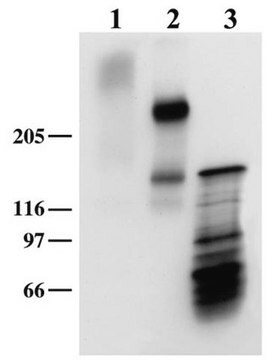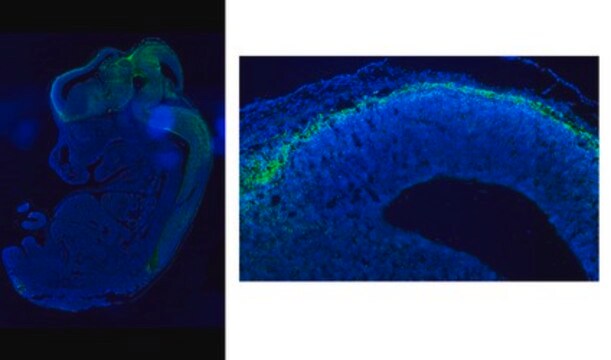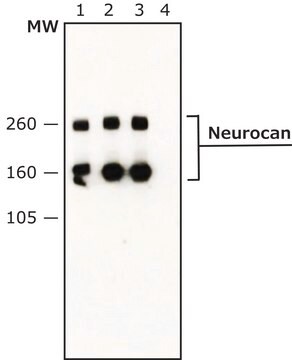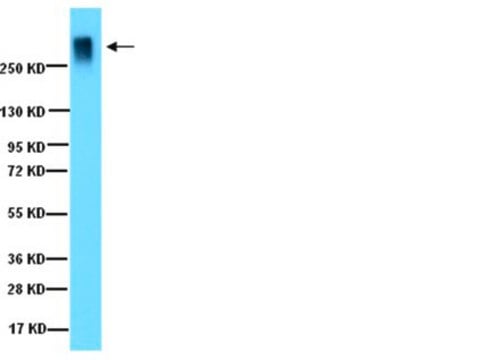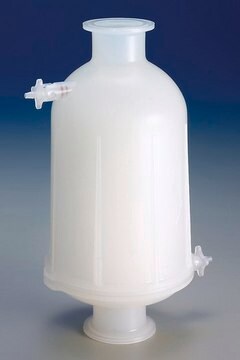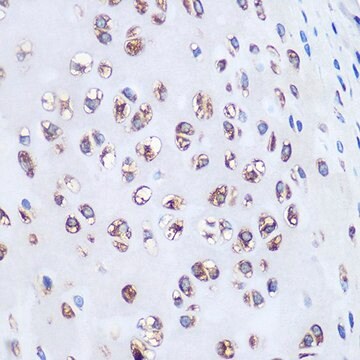MAB5212
Anti-Neurocan Antibody, clone 650.24
clone 650.24, Chemicon®, from mouse
Sinónimos:
245 kDa Early Postnatal Core Glycoprotein
About This Item
Productos recomendados
biological source
mouse
Quality Level
antibody form
purified immunoglobulin
antibody product type
primary antibodies
clone
650.24, monoclonal
species reactivity
rat
manufacturer/tradename
Chemicon®
technique(s)
immunocytochemistry: suitable
immunohistochemistry: suitable
immunoprecipitation (IP): suitable
western blot: suitable
isotype
IgG1
NCBI accession no.
UniProt accession no.
shipped in
wet ice
target post-translational modification
unmodified
Gene Information
human ... NCAN(1463)
General description
Specificity
Immunogen
Application
Neuroscience
Neuroregenerative Medicine
Growth Cones & Axon Guidance
Immunocytochemistry: 1:5
Immunohistochemistry on 4% paraformaldehyde fixed tissue: 1:1,000
Immunoprecipitation: 1-2 μg/mL
Optimal working dilutions must be determined by the end user.
Physical form
Storage and Stability
Analysis Note
POSITIVE CONTROL:
early post-natal rat brain. Not expressed in kidney, lung, liver, or muscle.
Other Notes
Legal Information
Disclaimer
¿No encuentra el producto adecuado?
Pruebe nuestro Herramienta de selección de productos.
Storage Class
10 - Combustible liquids
wgk_germany
WGK 2
flash_point_f
Not applicable
flash_point_c
Not applicable
Certificados de análisis (COA)
Busque Certificados de análisis (COA) introduciendo el número de lote del producto. Los números de lote se encuentran en la etiqueta del producto después de las palabras «Lot» o «Batch»
¿Ya tiene este producto?
Encuentre la documentación para los productos que ha comprado recientemente en la Biblioteca de documentos.
Nuestro equipo de científicos tiene experiencia en todas las áreas de investigación: Ciencias de la vida, Ciencia de los materiales, Síntesis química, Cromatografía, Analítica y muchas otras.
Póngase en contacto con el Servicio técnico